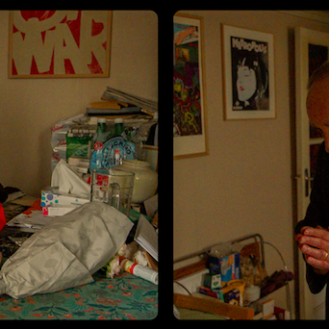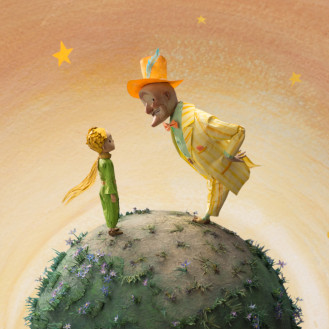Flee offers an intimate perspective from a lengthy conversation about rediscovering the past to plan for the future.
The animated doc features its vulnerable subject, Amin, airing out his experience fleeing Afghanistan with his family at a young age. Most of his youth was dedicated to this journey and, through each scene of stressful and discouraging attempts, the audience is bonded to Amin as his story tugs at our heartstrings. The personal approach of Jonas Poher Rasmussen’s filmmaking is more than appropriate. The unfolding aesthetics match the gradual trust Amin builds towards his listeners, which also gives audiences an unconventional and considerate deep-dive into a previously unknown story.
The movie’s additional edge is its animation. While the visuals have an immaculate sense for isolated and realistic emotions, I wish I was more of a fan of the style. The flow of the animation seamlessly incorporates flashbacks into present day storytelling, but the staggered movement of the characters, along with the muted colour palette, degrades this visual angle. Whenever a character entered the story, I couldn’t understand why there was such a distracting disconnect between their physicality and their mentality – like watching those demos of lifelike robots that haven’t been fully rendered yet.
Flee is still a very good movie and most of its acclaim is deserved. Some consider it a current frontrunner for best documentary and best animated film come Oscar time. Personally, I think it has a better shot at campaigning for the former rather than the latter.
**********
Do You Tweet? Follow These Tweeple:
Addison Wylie: @AddisonWylie





Be the first to comment